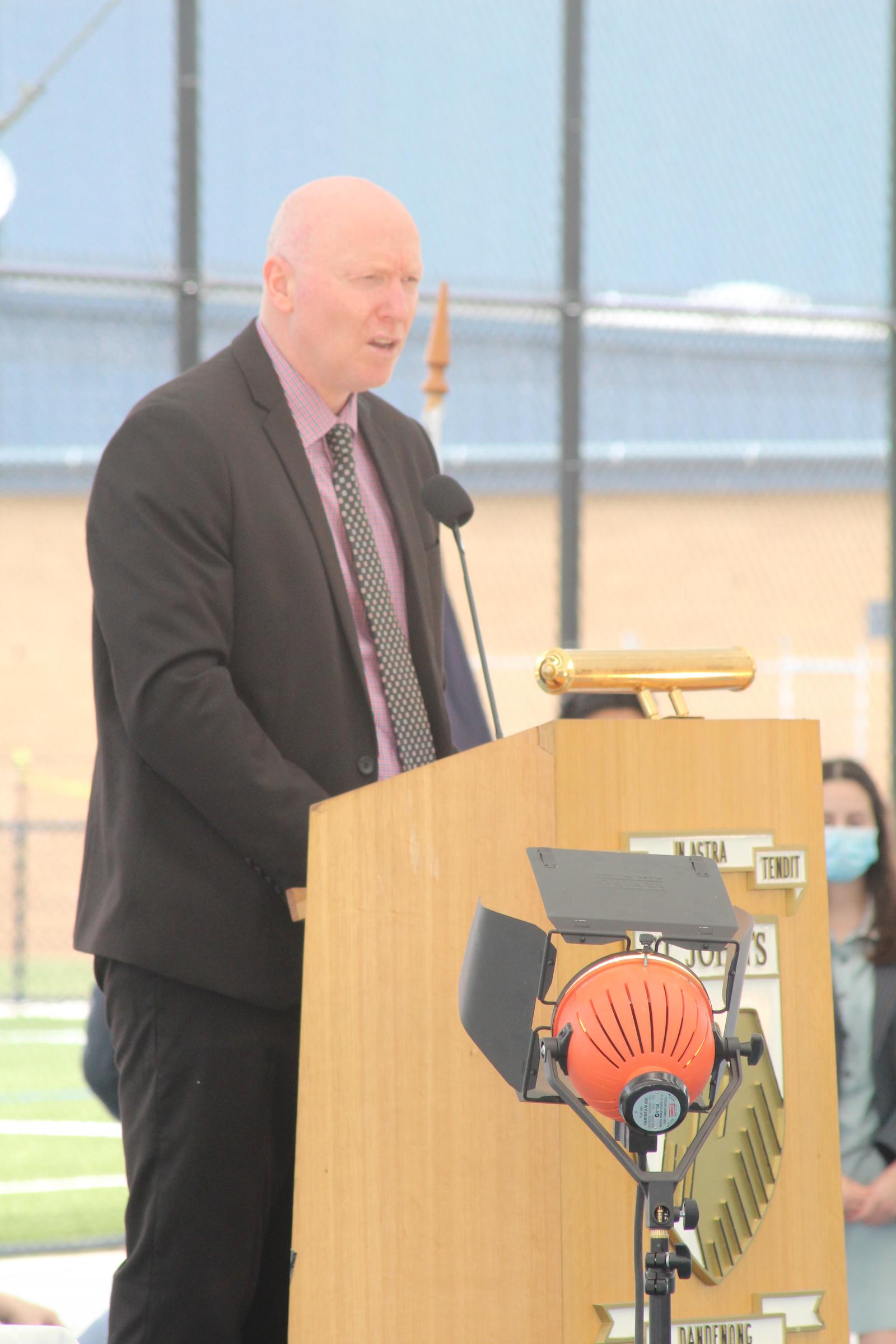Deputy Principal - Student Wellbeing
Mr Greg Van Es

Deputy Principal - Student Wellbeing
Mr Greg Van Es
St John’s Regional College is committed to staff, students and the wider community understanding the importance of respectful relationships and the impact of family violence and gender stereotypes and gender inequality on individuals. As such we have joined with the State Government's Respectful Relationships Program to ensure all members of our community feel safe and supported. To this end we will involve our Student Leaders from the Student Representative Council (SRC) in decision making around student safety as well as undertaking student and staff surveys on matters relating to respectful relationships and acting on the responses. Included below are a statement outlining our commitment to this process and also the guidelines for student engagement in the process. More information will follow in future newsletters.
We commit to implementing a whole-school approach to respectful relationships and to help combat family violence in Victoria.
We understand that:
We recognise that we have great potential to create change. Our school is a:
As part of this commitment:
We look forward to celebrating our success with our school community and to enjoying a culture of greater gender equality and Respectful Relationships.
The development and review of the Student Engagement Policy should be guided by Student Engagement and Inclusion Guidance.
It is a requirement that every Victorian government school has a Student Engagement Policy that articulates the expectations and aspirations of the school community in relation to student engagement, including strategies to address bullying, school attendance and behaviour.
A high-quality Student Engagement Policy will be a pivotal reference document for the implementation of a whole-school approach to Respectful Relationships.
• Do school leadership and staff promote a culture of respect, fairness and equality, and foster respectful relationships?
• Is the school environment inclusive and empowering, valuing the positive contributions of students and creating a sense of belonging and connectedness that are conducive to positive behaviours and effective engagement in learning?
• Are there multiple opportunities for students to take responsibility and be involved in decision-making?
• Are there school-wide and classroom processes to identify vulnerable students and those at risk of disengagement from school?
• Are there school-wide and classroom processes for ongoing collection and use of data for decision-making?
• Is there social/emotional and educational support for at-risk and vulnerable students?
• Are the school-wide and classroom expectations and consequences for problem behaviour clear?
• Are there multiple opportunities for students to take responsibility and be involved in decision-making?
• Has the creation of physical environments that are conducive to positive behaviours and effective engagement in learning been considered?
• Are the strategies backed by a solid evidence base?